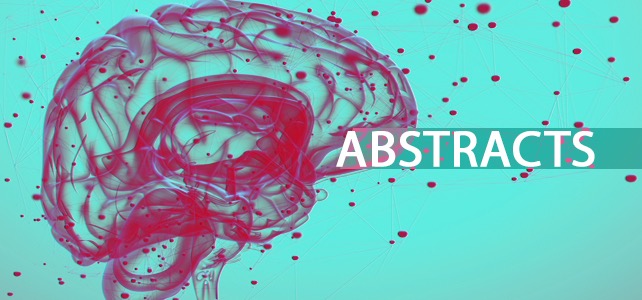Randomized, double-blind, phase III trial of a personalized peptide vaccination for human leukocyte antigen-A24-positive glioblastoma multiforme patients refractory to temozolomide-based therapy.
Sub-category:
Central Nervous System Tumors
Category:
Central Nervous System Tumors
Meeting:
2017 ASCO Annual Meeting
Abstract No:
2000
Citation:
J Clin Oncol 35, 2017 (suppl; abstr 2000)
Author(s): Mizuhiko Terasaki, Yoshitaka Narita, Yoshiki Arakawa, Kazuhiko Sugiyama, Tomokazu Aoki, Masayuki Kanamori, Motoo Nagane, Toshihiro Kumabe, Yuichi Hirose, Tomotsugu Ichikawa, Takamitsu Fujimaki, Hiroyuki Kobayashi, Hisaharu Goto, Hideo Takeshima, Tetsuya Ueba, Hiroshi Abe, Takashi Tamiya, Yukihiko Sonoda, Tatsuyuki Kakuma, Ryo Nishikawa; Department of Neurosurgery, Kurume University, Kurume, Japan; Department of Neurosurgery and Neuro-Oncology, National Cancer Center Hospital, Tokyo, Japan; Department of Neurosurgery, Kyoto University Graduate School of Medicine, Kyoto, Japan; Department of Clinical Oncology and Neuro-Oncology Program, Hiroshima University Hospital, Hiroshima City, Japan; Department of Neurosurgery, National Hospital Organization, Kyoto Medical Center, Kyoto, Japan; Department of Neurosurgery, Tohoku University Graduate School of Medicine, Sendai, Japan; Department of Neurosurgery, Kyorin University Faculty of Medicine, Tokyo, Japan; Department of Neurosurgery, Kitasato University School of Medicine, Kanagawa, Japan; Department of Neurosurgery, Fujita Health University, Toyoake, Japan; Department of Neurological Surgery, Okayama University Graduate School of Medicine, Denistry, and Pharmaceutical Sciences, Okayama, Japan; Department of Neurosurgery, Saitama Medical University Hospital, Saitama, Japan; Department of Neurosurgery, Hokkaido University Graduate School of Medicine, Sapporo, Japan; Department of Neurosurgery, Yamaguchi University School of Medicine, Ube, Japan; Department of Neurosurgery, Division of Clinical Neuroscience, Miyazaki, Japan; Department of Neurosurgery, Kochi Medical School, Kochi, Japan; Department of Neurosurgery, Faculty of Medicine, Fukuoka University, Fukuoka, Japan; Department of Neurological Surgery, Kagawa University Faculty of Medicine, Kagawa, Japan; Department of Neurosurgery, Yamagata University Faculty of Medicine, Yamagata, Japan; Biostatistics Center, Kurume University, School of Medicine, Fukuoka, Japan; Department of Neuro-Oncology/Neurosurgery, Saitama Medical University International Medical Center, Saitama, Japan
Abstract Disclosures
Abstract:
Background: To establish whether personalized peptide vaccination (PPV) is clinically beneficial for human leukocyte antigen (HLA)-A24-positive glioblastoma multiforme (GBM) patients refractory to temozolomide (TMZ)-based therapy. Methods: From January 2012 to March 2016, 88 HLA-A24-positive GBM patients refractory to TMZ-based therapy from 20 Japanese hospitals were randomly assigned to receive PPV treatment (n = 58) or best supportive care (BSC) (n= 30) at a 2 to 1 ratio. Four peptides chosen from 12 peptide candidates based on pre-vaccination IgG levels specific to each peptide or 4 corresponding placebos were injected subcutaneously once weekly for 12 times at the first course followed by biweekly vaccinations until disease progression. The primary endpoint was overall survival (OS). Results: The primary endpoint was not met in this clinical trial. Unfavorable prognostic factors were performance status (PS) 3, higher plasma levels of pre-vaccination granulocyte macrophage-colony stimulating factor (GM-CFS), and PPV containing SART2-derived peptides. Therefore, 78 patients with PS of 0 to 2 (50 with PPV and 28 with BSC) were provided for the subgroup analysis. Among them, the median OS of 39 PPV patients (10.4 months, 95% CI, 7.8-12.0 months) who had either lower levels of GM-CSF ( < 0.9 pg/mL) or 4 peptide vaccinations that did not include SART2-derived peptides was significantly (p = 0.03) longer than that of the corresponding 19 BSC patients (6.8, 4.6-12.7). In contrast, the median OS of 10 PPV patients (4.1, 1.1-8.3) who had both higher levels of GM-CSF ( > 0.9 pg/mL) and 4 peptide vaccinations containing SART2-derived peptides was significantly (p = 0.01) shorter than that of the corresponding 9 BSC patients (not reached, 1.6-not reached). A single grade 3 adverse event was the only PPV-related adverse event of grade > 3 in this study. Conclusions: PPV monotherapy could be a new treatment modality for HLA-A24-positive GBM patients refractory to TMZ-based therapy, since this approach showed clinical benefit and safety under precision medicine-based pre-vaccination selection of appropriate patients. Clinical trial information: UMIN000006970.

